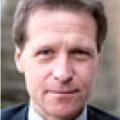
A metal-detecting enthusiast and seller of old coins claimed he was only seeking to confirm the authenticity of rare Anglo Saxon monetary pieces on approaching experts over their provenance.
Craig Anthony Best denies he was trying to sell the coins on behalf of a friend and fellow metal detectorist, Roger Pilling.
The 46-year-old defendant, of South View, Bishop Auckland, was giving evidence at Durham Crown Court, where he is on trial with co-accused, Pilling, 75, of Rossendale, in Lancashire.
Both deny conspiring to convert criminal property, Anglo-Saxon-minted coins, which are thought to be from an undeclared Viking hoard, believed to have been buried for safe-keeping in Herefordshire prior to a 9th Century battle.
Read more: Trial of Bishop Auckland man and co-accused in ancient coins case
They each also deny separate counts of possessing criminal property.
Those charges relate to three coins in Best’s possession when he attended an arranged meeting with what he believed to be an expert in rare coins, who was supposedly to prove their authenticity on behalf of a prospective American buyer.
But he was arrested at that meeting, at Durham’s Royal County Hotel, in May 2019, as the people who organised the get-together were undercover police officers.
Pilling was then arrested at his home in Loveclough, Rossendale, from where a further 41 coins were recovered.
The court has been told that they have been estimated to be worth a total of £766,000.
During the trial the jury has heard the coins should have been declared or officially reported under the Treasure Act.
Best told the court he had been a metal detectorist for 24 years, mainly with a group of four fellow enthusiasts, carrying out their hobby with the permission of landowners in North Yorkshire.
He said he got to know Pilling through metal detecting forums on social media and had previously been in contact with him.
Best claimed his main field of interest was in sceats, small Northumbrian coins from the Anglo-Saxon era, selling many to collectors.
Regarding the coins which are the subject of the trial, he said he did not know much about them, as they were not of the type he had an interest.
Read more: Jury told of Bishop Auckland man's bid to 'sell' Viking hoard coins
He said Pilling spoke to him about the coins as he told him he had about 40 of them.
Asked what he said to Pilling, Best told the court: “I said to Roger are they stolen or part of a hoard?
“He assured me they were not, and he told me he bought them from someone down south and they weren’t part of a treasure trove or anything like that.
“He said he wanted to know if they were real or genuine.
“You can get a fake, a monetary replica, and I couldn’t tell.”
Best said he was merely trying to get them checked when he approached independent experts or collectors in the field, but he conceded, under cross-examination, he had not sought the views of acknowledged experts at the Fitzwilliam Museum, in Cambridge, or at the British Museum.
Read next:
* Rare coin 'seller' unaware would-be buyer was undercover cop
* Experts in old coins will give views over provenance of Viking hoard at Durham trial next April
* US expert tells trial he thought Viking hoard coins on offer were fake
Subscribe to a Premium Plus package to The Northern Echo from as little as £1.50 per week and read more quality stories and extras. Click here
Asked by prosecuting counsel Matthew Donkin why not, he said they were not his coins, but he did accept he was trying to find out if they were genuine or not.
He also denied Mr Donkin’s suggestion that he was trying to sell them, “on the black market.”
The trial continues tomorrow (Tuesday April 25), when closing speeches will be given by Mr Donkin and defence counsel Sharon Watson, for Pilling, and Stephen Garbett, for Best.



Comments: Our rules
We want our comments to be a lively and valuable part of our community - a place where readers can debate and engage with the most important local issues. The ability to comment on our stories is a privilege, not a right, however, and that privilege may be withdrawn if it is abused or misused.
Please report any comments that break our rules.
Read the rules hereComments are closed on this article